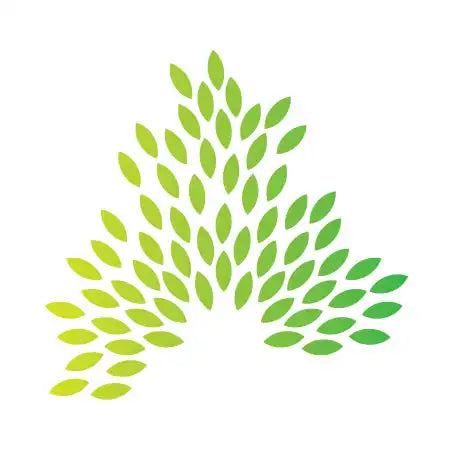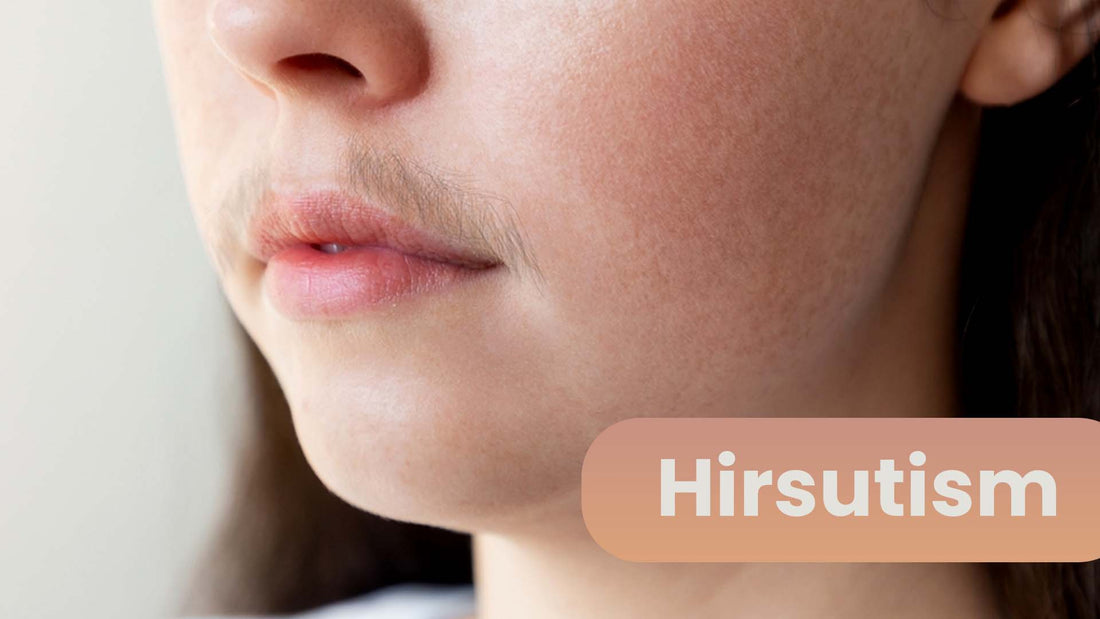Excessive facial hair can be a challenging issue, affecting self-esteem and confidence both for men and women. This article explores effective ways to address hirsutism and PCOS providing insights into its causes, symptoms, and potential solutions.
What is Hirsutism?
Hirsutism refers to excessive dark, coarse hair growth in areas typically seen in males. It's more than just a cosmetic concern; it can impact emotional well-being.
Understanding the Causes of Hirsutism
Hirsutism is more than just an inconvenience; It's a health condition triggered by an excess production of androgens, the male hormones present in both genders. This excessive hair growth often goes beyond the normal fine hair that covers the body and can lead to a significant emotional burden. Conditions like polycystic ovary syndrome (PCOS), a common endocrine disorder, can exacerbate hirsutism due to heightened androgen production.
Uncovering Hirsutism Symptoms
Visible symptoms include thick and dark facial hair, leading to embarrassment and anxiety. Beyond physical symptoms, the emotional toll should not be underestimated.
Empowering Solutions Managing hirsutism requires a holistic approach. A medical professional should be consulted to identify the origin of the cause and create a tailored treatment strategy.
Tackling with Hirsutism: Medical and Lifestyle Interventions
When it comes to dealing with hirsutism, there are two main ways to help: medical treatments and changes in how you live.
Medical Treatments:
Doctors can give you medicines that help control hormones and reduce hair growth. These medicines work by managing the hormones that cause excessive hair. Think of it as a way to bring those hormones back into balance. It's like putting the reins on a wild horse, so it doesn't run too fast.
Lifestyle Changes:
Just like a car needs the right fuel and regular check-ups to run well, your body needs good food and activity to stay healthy. Eating a balanced diet, which means getting a mix of different foods, can help your body work better. Exercising, like walking or dancing, keeps everything moving smoothly.
Improvement through Diet
-
Green Tea
Incorporating green tea into your diet is highly recommended, offering remarkable benefits for your overall health. Studies have revealed that green tea's polyphenols can lessen the presence of a hormone that contributes to hirsutism. They also work against the effects of androgen and testosterone.

-
Spearmint Tea
Spearmint is a proven ally in managing hair growth. It's known to lower the levels of active testosterone in your blood, which helps prevent excessive hair growth. Sipping on two to three cups of spearmint tea daily can aid in controlling hair growth.

-
Cinnamon Tea
If your excess hair growth is linked to insulin resistance, cinnamon is a spice worth incorporating more of. Cinnamon supports increased sensitivity to insulin, regulates blood sugar levels, and curbs sugar cravings.
-
Crimini Mushrooms
Crimini mushrooms are a fantastic source of Vitamins B2, B3, and B5, all of which contribute to reducing hirsutism. Vitamin B2 helps normalize thyroid and metabolic functions, B3 controls blood sugar, and B5 supports weight management. By including more crimini mushrooms in your diet, you can take steps toward managing hair growth.

-
Lettuce
It's quite surprising how a simple salad ingredient can play a role in curbing hair growth. Lettuce holds a valuable element called chromium, a trace mineral that assists in controlling blood sugar levels. By doing so, it helps lower insulin production. Additionally, lettuce can support weight loss, making it a smart choice to include in your daily meals.
-
Apricots
When it comes to boosting your intake of B complex vitamins, apricots are a top-notch choice. Within this small fruit, you'll find Vitamins B3, B5, and B6. This powerful trio of vitamins works together to aid in weight management, diminish hair growth, and uphold hormonal equilibrium in your body.
-
Barley
When it comes to whole grains, barley stands out as a must-add to your anti-hirsutism diet. What makes it remarkable is its extremely low Glycemic Index (GI) score, meaning it won't cause spikes in your blood sugar levels. This low impact on blood sugar helps reduce insulin resistance. Both hulled and regular barley are excellent energy-providing carbs that won't lead to dramatic blood sugar fluctuations.

Remember, while these foods offer potential benefits, it is advised wise to consult a health professional before making any important dietary changes, especially if you're managing specific health conditions like hirsutism.
Top of Form
When you put these two things together, it's like having a team that works together to make things better. The medicines help your body from the inside, and the healthy habits support it from the outside. This teamwork can make a real difference in how you feel and look. So, remember, it's not just one thing – it's a mix of both that can bring positive changes.
Beauty and Beyond: Dealing with Facial Hair
Facial hair challenges can significantly impact the self-confidence of women, often leading to feelings of self-consciousness and even embarrassment. Society's beauty standards have long perpetuated the image of smooth, hair-free skin, making it particularly challenging for those who don't fit this mold.
It's important to understand that facial hair, while a natural occurrence for all genders, has been stigmatized and gendered. Women with facial hair may feel isolated and struggle with their self-image.
Understanding PCOS and Its Link to Hirsutism
PCOS, a common hormonal disorder, is a frequent cause of hirsutism. Hormonal imbalances lead to both physical and emotional challenges.
Exploring PCOS Symptoms and Impacts PCOS brings about irregular periods, hair loss, and more. These symptoms can impact mental well-being and overall quality of life.
Navigating Treatment for PCOS
Medical treatments, lifestyle adjustments, and weight management are key elements in managing PCOS-related hirsutism. A multidisciplinary approach is effective.
Embracing Confidence
Self-acceptance is crucial. Embrace your unique beauty, seek professional guidance, and cultivate self-confidence through positive self-talk and self-care.
The Journey to Smooth Skin
Hair Removal Techniques Various methods like waxing, threading, and laser hair removal offer temporary relief. Consider factors such as pain tolerance and skin sensitivity when choosing a method.
Hair Removal Techniques
Getting rid of unwanted hair is possible using different ways like waxing, threading, or laser hair removal. These methods give you a break from the hair, but it's not a permanent fix.
Choosing the Right Method:
When you decide how to remove hair, think about how much pain you can handle and how sensitive your skin is. Some methods might hurt more than others, and some could cause skin irritation.
Using Natural Hair Inhibitors:
One good way to reduce facial hair is by using natural hair inhibitors. These are like little helpers that slow down the growth of hair. They don't make the hair disappear forever, but they can make it less noticeable and help you manage it better. Think of it like putting a speed bump on a road – it doesn't stop the cars, but it makes them go slower. These natural inhibitors can be creams or lotions that you apply to your skin.
So, when you're looking to say goodbye to unwanted hair, think about what works best for you, how much you can handle, and if there are any little helpers that can make your journey smoother.
Living Boldly: Stories of Triumph
Stories of individuals who've overcome hirsutism inspire confidence. They prove that with determination and support, self-acceptance is achievable.
Conclusion
By learning why hirsutism happens, dealing with its signs, and checking out ways to treat it, people can handle the challenge of hirsutism, PCOS, and facial hair better. It's like finding your way through a tough maze – you learn about the paths, you find solutions, and you come out stronger on the other side. Just remember, you're not alone on this journey. There's help, support, and the potential to feel more confident and resilient in the end.



